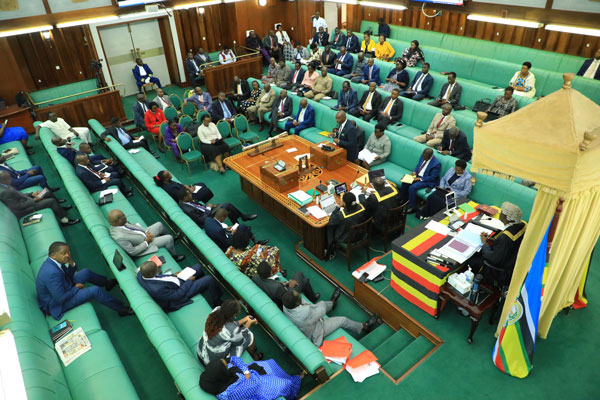
Kampala, Uganda | THE INDEPENDENT | Many Ugandans view Members of Parliament (MPs) as service providers, despite the official focus of their role being representation. Concerns over transparency and accountability have recently heightened public discussions about MPs’ responsibilities.
According to the 2024 Sauti za Wananchi report by Twaweza-Uganda, 64% of citizens see MPs as communicators, responsible for voicing citizens’ needs to the government and maintaining strong connections with their constituencies.
However, 29% also expect MPs to provide material assistance. In a Twitter Space discussion hosted by Twaweza Uganda on Thursday Senior Programs Officer Marie Nanyanzi highlighted Ugandans’ clear memories of campaign promises, many of which they feel remain unfulfilled.
“Seventy-seven percent of citizens recall promises made by MPs, yet 45% report that pledges—including roads, schools, health facilities, and electricity—have not materialized,” Nanyanzi said.
Responding to the criticism, Mawogola South MP Goreth Namugga emphasized that service delivery falls under the government’s purview. “Our duty as MPs is to ensure resources are properly allocated,” she said, noting that public pressure often pushes politicians into making commitments they cannot personally fulfill.
Namugga also criticized the commercialization of politics, commenting, “Citizens know we’re not supposed to provide direct financial aid, but politics has become a matter of survival. We must, however, educate the public on MPs’ real duties.”
Joseph Tahinduka, a policy analyst at the Center for Policy Analysis, suggested that empowering Ugandans economically would reduce their dependency on MPs for material support. “When citizens are financially stable, they won’t look to MPs for financial aid,” Tahinduka argued, adding that economic security could shift expectations toward MPs’ legislative roles.
In Twaweza’s Sauti za Wananchi survey, most citizens (64%) view MPs primarily as communicators, while a smaller percentage (29%) expects direct assistance. These views have remained consistent since 2019.
Demographic data shows that rural and economically disadvantaged citizens are more likely to look to MPs for material support, while urban and wealthier citizens prioritize representation in Parliament.
Male respondents are also more inclined to see MPs as legislators.Citizens report mixed views on the obstacles MPs face: 18% identify limited funding, 11% cite overwhelming community demands, and 9% point to corruption. However, 41% admit they’re unsure of the specific challenges MPs encounter.
The report reveals limited direct engagement between MPs and constituents. Eighty-six percent of citizens say their MP has never organized a meeting to consult or provide updates on parliamentary issues. Only 14% recall any such interaction, with rural residents slightly more likely to report engagement than urban citizens.
Additionally, only 6% of citizens have ever approached their MP, generally to request financial aid or inquire about local projects. Communication with MPs primarily occurs through direct contact (56%), public hearings (30%), and local leaders (18%).
Despite limited direct engagement, interest in parliamentary proceedings has grown substantially. Currently, 73% of citizens follow parliamentary news via live broadcasts, up from 51% in 2019.
Friends and family (30%) and news clips (20%) also serve as key information sources. Wealthier urban residents are more likely to follow Parliament via news clips and social media, while women rely more on word-of-mouth updates.
These findings emphasize the need for MPs to balance their official duties with citizens’ expectations for material assistance and active outreach. They also indicate a growing demand for clarity on MPs’ responsibilities and the importance of enhancing citizens’ understanding of political processes.
***
URN
 The Independent Uganda: You get the Truth we Pay the Price
The Independent Uganda: You get the Truth we Pay the Price


